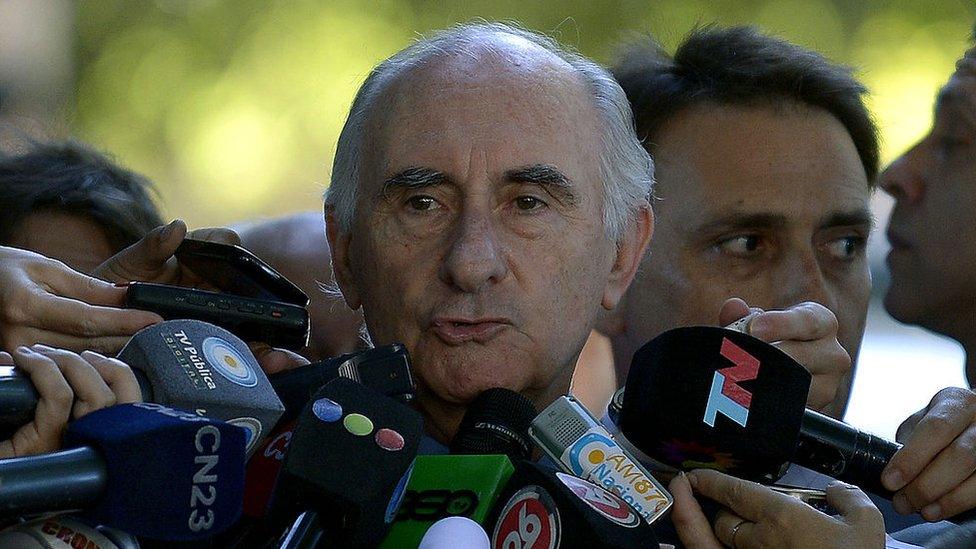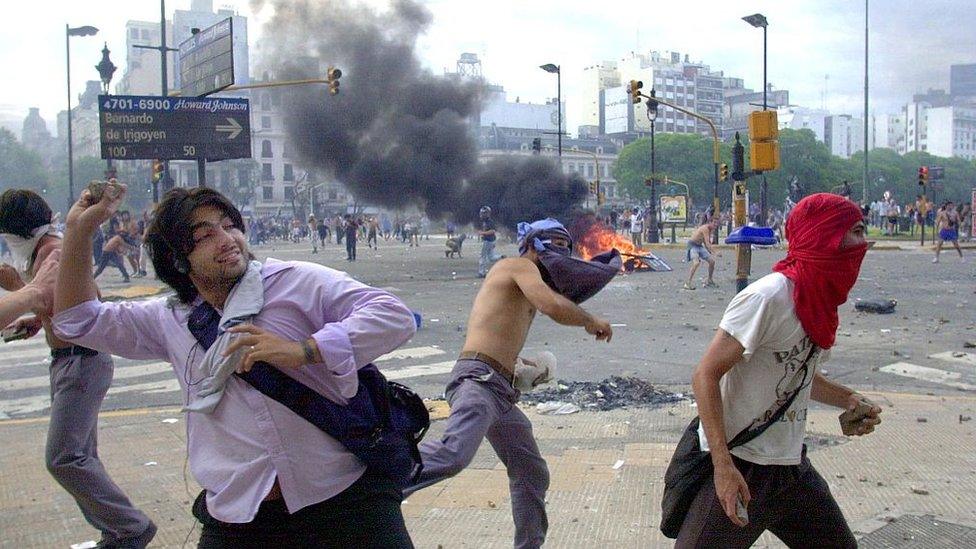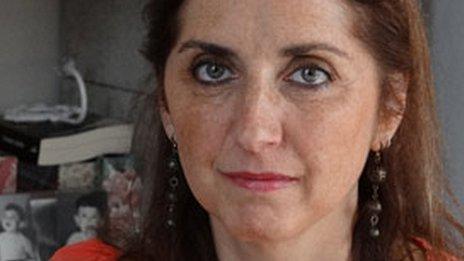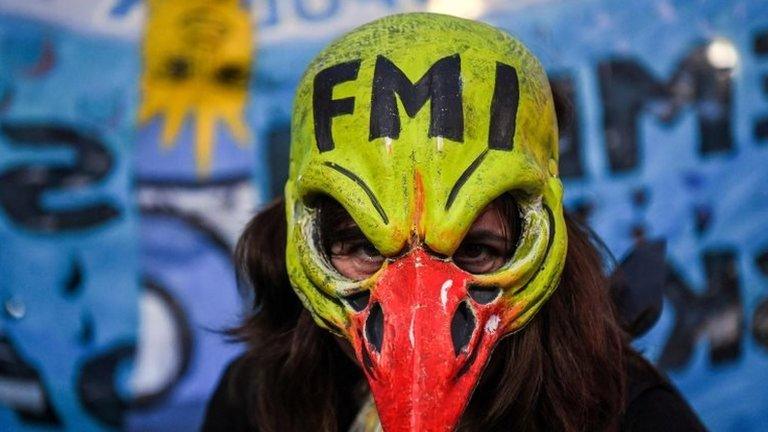Fernando de la Rúa, Argentine ex-president, dies at 81
- Published

Fernando De La Rúa after being acquitted of bribery charges in 2013
Former Argentine President Fernando de la Rúa, who quit office amid violent discontent, has died in Buenos Aires aged 81.
De La Rúa ran the country for just over a year, leaving in December 2001 at the height of the country's economic crisis with riots taking hold.
The country had four different presidents in the following two weeks.
The Telam state news agency said he died of cardiac problems and other complications.
The government has declared three days of national mourning and President Mauricio Macri tweeted his condolences to De La Rúa's family.
How did De La Rúa come to power?
A former lawyer and head of the Buenos Aires government, he was voted in to office on a campaign based around the slogan "I know I'm boring".
He modelled himself as a stark contrast to his predecessor, the flamboyant Carlos Menem, external, whom Argentines suspected of corruption and favouritism.
He did not belong to the polarising Peronist party, which dominated the trade unions, but was a member of the moderate Radical Party, only once before in power in recent history.
He was also not linked to the armed forces, who led a brutal dictatorship in the late 1970s and early 1980s. He had distanced himself from that period by stepping down as a senator when the junta took over.
What happened with his presidency?
Argentina was experiencing a dire recession when De La Rúa took over.
He took office with a 75% approval rating and promised economic revival. But he was soon accused of being too passive and giving free rein to Economy Minister Domingo Cavallo, who is widely credited with making a bad situation even worse.
Carina Etchegaray: "I will never put my savings in the bank again"
The final straw for many Argentines was when Mr Cavallo, in an attempt to stem a run on the banks, introduced a cap on withdrawals in December 2001. This angered the middle classes as they watched their savings disappear through rapid devaluation.
Many voiced their discontent by taking to the streets bashing saucepans.
After street protests escalated, De La Rúa declared a state of emergency on 19 December. This led to further outbreaks of violence.

Protesters confronting police on 20 December 2001
He quit the next day. According to Clarín newspaper, he boarded the helicopter seven minutes after releasing his resignation statement.
Dozens of protesters died in the clashes with authorities.
His later years
After his presidency, he was caught in a corruption scandal, accused of bribing senators to pass a controversial labour reform in 2000.
He was found not guilty in 2013.
According to Clarin newspaper, his last public engagement was in December 2018.
The following month he was taken to hospital, struggling with health problems.
- Published2 December 2011

- Published9 September 2018
